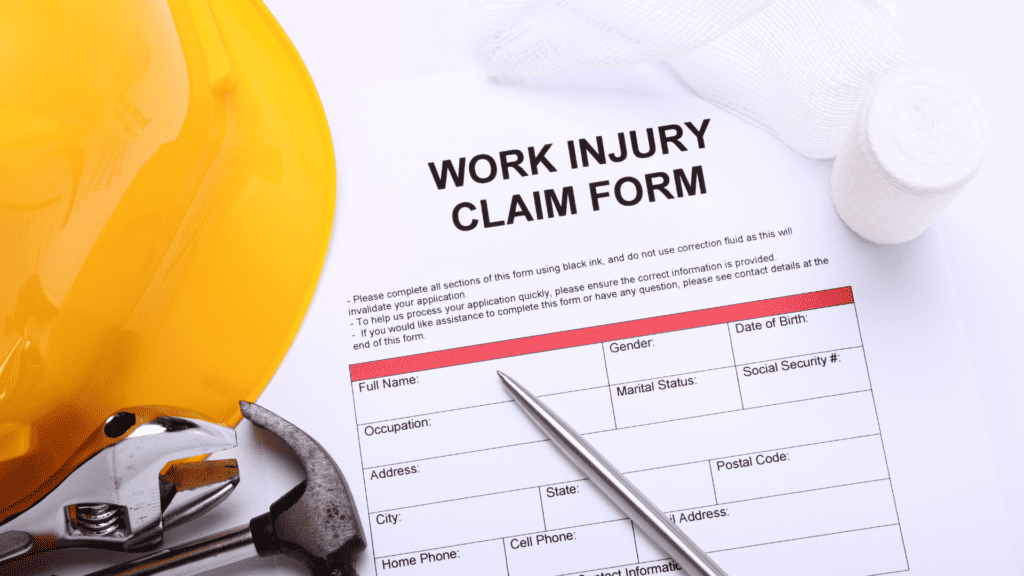Imagine this scenario: John, a dedicated construction worker, suffers a serious injury on the job. The incident leaves him in excruciating pain and unable to work, putting a strain on his finances and livelihood. As John seeks compensation through a worker’s compensation claim, he encounters numerous hurdles, one of which could have been avoided if he had reported the incident in a timely manner.
In many states, if you do not report your injury within 20-30 days, an employee can lose their right to receive workers’ compensation benefits. This is why it is critical for employees to report an injury in a timely manner.
Worker’s compensation claims are designed to provide financial protection and support to employees who suffer injuries or illnesses while performing their job duties. Timely reporting refers to the prompt notification of workplace incidents to employers, ensuring that necessary actions are taken to address the situation effectively.
While reporting workplace injuries may seem like a straightforward task, its significance cannot be overstated. Timely reporting is a crucial factor that can make or break a worker’s compensation claim. It not only helps injured workers secure the compensation they deserve but also ensures a smoother claims process, preserves evidence, establishes causation, and strengthens the relationship between employers and employees.
In this article, we will delve into the importance of timely reporting and its impact on worker’s compensation claims.

What is Timely Reporting for Worker’s Compensation Claims?
Timely reporting, in the context of worker’s compensation claims, refers to the prompt notification of workplace injuries or illnesses to employers or supervisors. It is the responsibility of the injured employee to promptly inform their employer about any incident, ensuring that the necessary documentation and procedures can be initiated quickly.
When an injury occurs, immediate reporting initiates the formal process of filing a claim, allowing the injured employee to access benefits and financial assistance for medical treatment, lost wages, and rehabilitation. Failing to report the incident quickly can jeopardize the entire claims process and hinder the employee’s ability to receive the compensation they deserve.
Benefits of Timely Reporting
The most staggering and important benefit of quickly and accurately reporting an injury is to prevent a denied claim for an employee. When an employee fails to report a workplace injury promptly, they run the risk of having their claim denied by the worker’s compensation insurance provider.
Denied claims often occur when there is a lack of timely documentation and evidence to substantiate the injury. Insurance providers may argue that the injury was not work-related or question the severity of the injury due to delayed reporting. Additionally, without timely reporting, it becomes difficult to establish a clear timeline of events and demonstrate that the injury occurred within the scope of employment.
Another advantage of timely reporting is the preservation of evidence. By reporting an injury as soon as it happens, the employee increases the chances of documenting the incident accurately. This includes gathering witness statements, photographs, medical reports, and any other relevant evidence that can support the worker’s compensation claim. Delayed reporting may lead to the loss or alteration of crucial evidence, making it challenging to establish the validity of the claim and potentially resulting in its denial.
Moreover, reporting workplace injuries promptly ensures the accuracy of the information provided. Memories fade over time, and details surrounding the incident may become hazy. By reporting immediately, the employee can provide a more accurate and detailed account of what transpired, leading to a stronger and more compelling claim.
A final, often overlooked, benefit of prompt injury reporting is the ability it gives employers to take action and fix any problems and prevent another incident from happening again. This helps ensure a safe work environment and shows the company’s commitment to the well-being of its employees.

How Can Delayed Reporting Result in Denials
When it comes to worker’s compensation claims, delayed reporting can have a negative impact on an employee’s claim eligibility. Most jurisdictions have specific time limits within which employees must report workplace injuries or illnesses to their employers. Failing to meet these reporting deadlines can result in a loss of eligibility to file a claim altogether.
In Kansas, an employee must provide notice to their employer at the time of injury, either orally or in writing, within 20 days from the date of the accident, 20 days from the date of medical treatment is sought, or 10 days after the last day actually worked if the employee is no longer employed by the employer. (1)
Late reporting raises doubts about the authenticity and severity of the injury. Insurance providers and employers may question whether the injury truly occurred at the workplace or if it was caused by non-work-related activities. The longer the delay in reporting, the harder it becomes to establish a direct link between the workplace and the injury.
Additionally, delayed reporting can give rise to suspicions of fraudulent claims. Insurance providers may view late reports as attempts to exploit the system, potentially leading to increased scrutiny and skepticism surrounding the claim. This can create unnecessary hurdles and challenges for the employee, who may have to provide additional evidence and documentation to substantiate their claim.
Tips for Employees for Reporting Workplace Injuries Quickly
Prompt reporting of workplace injuries is vital to protect employees’ rights and ensure a smooth worker’s compensation claims process. To help employees navigate this process effectively, here are some practical tips for reporting workplace injuries promptly:
- Act swiftly: As soon as an injury occurs, report it to your supervisor or employer immediately. Don’t delay or assume the injury will resolve on its own. Timely reporting establishes a clear record of the incident and ensures that necessary actions can be taken promptly.
- Follow company procedures: Familiarize yourself with your company’s protocols for reporting workplace injuries. Be aware of the designated person or department responsible for handling such reports. Follow the prescribed reporting process to ensure compliance with internal procedures and legal requirements.
- Provide detailed information: When reporting the injury, provide a comprehensive account of what happened, including the date, time, location, and any contributing factors. Be clear and concise in your description, focusing on the essential details related to the injury. Providing accurate and detailed information helps establish the validity of your claim.
- Preserve evidence: If possible, gather evidence that supports your claim. This may include photographs of the accident scene, damaged equipment, or hazardous conditions. Preserving evidence strengthens your case and helps establish the cause-and-effect relationship between the workplace and the injury.
Companies can help facilitate prompt reporting by making the process clear and easy to follow. Many employees don’t report injuries at work because they are unsure of what and how they should report.
Conclusion
Timely reporting of workplace injuries is a critical step in the worker’s compensation claims process. By quickly and accurately reporting injuries, employees can protect their rights, ensure a smoother claims process, and increase the chances of receiving fair compensation for their claims.
Remember, timely reporting not only protects individual employees but also contributes to a safer work environment. By prioritizing prompt reporting, we can work towards a system that ensures the well-being and rights of all workers.
Contact WorkSafe to find out how we can help your company today!
Working to keep you safe, healthy, and productive,

References
- https://www.dol.ks.gov/wc/injuries-at-work#:~:text=The%20employee%20must%20provide%20notice,if%20the%20employee%20is%20still
